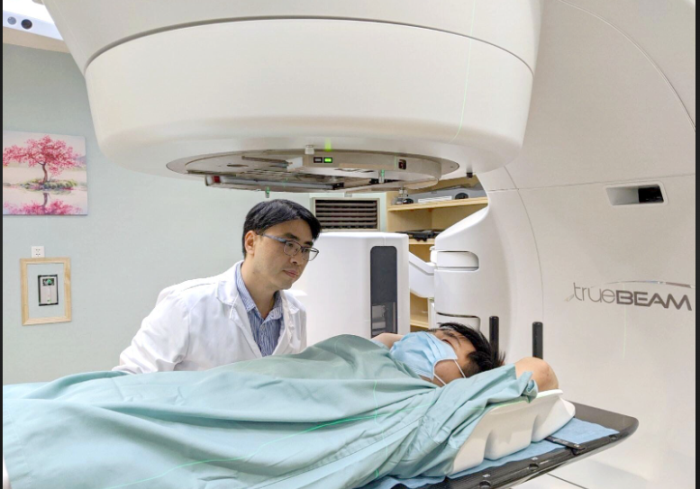Pituitary tumors are abnormal growths that occur in the pituitary gland, which plays a crucial role in regulating various hormones in the body. While surgery is a common treatment option, many patients seek to explore non-surgical options available in India. This blog delves into effective alternatives such as radiation therapy, medications, and lifestyle changes, providing valuable insights for those considering non-invasive treatments for pituitary tumors.
Understanding Pituitary Tumors: Types and Symptoms
There are several types of pituitary tumors, including adenomas and carcinomas. Common symptoms include headaches, vision problems, and hormonal imbalances such as Cushing's disease or acromegaly. Awareness of these symptoms is essential for timely intervention and treatment planning.
Importance of Early Detection and Diagnosis
Early detection of pituitary tumors significantly improves treatment outcomes. Diagnostic tools such as MRI and CT scans are critical in identifying the tumor type and size. Regular check-ups and awareness of symptoms can lead to quicker diagnoses, enabling more effective non-surgical treatment options.

Non-Surgical Treatment Options Overview
Non-surgical treatments for pituitary tumors include radiation therapy, medications, and lifestyle modifications. These options are especially appealing for patients who may be at risk during surgery or prefer to avoid invasive procedures. Understanding these alternatives is crucial for informed decision-making.
Radiation Therapy for Pituitary Tumors
Radiation therapy is a primary non-surgical treatment that targets tumor cells while minimizing damage to surrounding healthy tissue. Techniques such as stereotactic radiosurgery and external beam radiation offer precision in treatment. This approach can be especially effective for benign tumors and cases where surgery is not viable.
Types of Radiation Therapy: Focused vs. Conventional
Focused radiation therapy, like Gamma Knife, delivers high doses to the tumor while sparing nearby tissues. In contrast, conventional radiation therapy involves multiple sessions over several weeks. Both methods aim to shrink tumors and manage symptoms, making them suitable options for patients seeking non-surgical treatment.

Medications for Hormone-Secreting Tumors
Certain hormone-secreting tumors can be managed with medications that target hormone production. For instance, dopamine agonists like cabergoline are effective for prolactinomas, while somatostatin analogs can help control growth hormone production. These medications offer a less invasive approach to managing tumor growth.
Targeted Therapy: How It Works
Targeted therapy focuses on specific molecular targets associated with pituitary tumors, often leading to fewer side effects compared to traditional chemotherapy. This innovative approach can significantly improve treatment outcomes for patients with specific tumor types, enhancing their overall quality of life.
Chemotherapy for Pituitary Tumors: When Is It Used?
While less common, chemotherapy can be employed for malignant pituitary tumors that do not respond to other treatments. It targets rapidly dividing cancer cells and can be considered in cases where the tumor is aggressive or has spread beyond the pituitary gland.
Role of Clinical Trials in Non-Surgical Treatment
Clinical trials provide access to cutting-edge treatments and therapies not yet widely available. Participating in these trials can be a viable option for patients seeking innovative non-surgical alternatives. Staying informed about ongoing research is essential for those looking for new treatment avenues.
Lifestyle Changes and Their Impact on Tumor Management
Adopting a healthy lifestyle can significantly impact the management of pituitary tumors. Regular exercise, a balanced diet rich in antioxidants, and stress-reduction techniques can help improve overall well-being and support the body during treatment. These lifestyle changes complement medical therapies and enhance patient outcomes.
Dietary Considerations for Patients with Pituitary Tumors
A nutrient-rich diet can aid in the recovery and management of pituitary tumors. Incorporating foods high in omega-3 fatty acids, fiber, and antioxidants may help reduce inflammation and promote healing. Patients are encouraged to consult a nutritionist for personalized dietary recommendations.
Best Pituitary tumor surgery in India
India is becoming a top destination for the Best Pituitary tumor surgery, thanks to its world-class facilities and expert surgeons who offer affordable treatment. The country’s advanced medical infrastructure supports both traditional and minimally invasive techniques, ensuring high-quality care for patients. This combination of cost-effectiveness and high success rates is attracting international patients, making India a hub for pituitary tumor surgeries
Best Hospitals for Pituitary Tumor Surgery in India
India is home to some of the best hospitals for pituitary tumor surgery, including AIIMS, Fortis, and Apollo Hospitals. These institutions are equipped with cutting-edge technology and staffed by top neurosurgeons, offering world-class care at a fraction of the cost compared to Western countries.
Best Doctors for Pituitary Tumor Surgery in India
India has some of he best doctors for pituitary tumor surgery in india, such as Dr. Ashish Suri and Dr. Vikas Gupta. These experts are known for their skill in both traditional and minimally invasive surgical techniques, achieving high success rates in tumor removal.
Cost of Pituitary Tumor Surgery in India: What to Expect
The cost of pituitary tumor surgery in India ranges from $4,000 to $7,000, depending on the complexity of the case and the hospital chosen. This cost is significantly lower compared to countries like the USA or UK, making India an attractive option for affordable, high-quality care.
Complementary Therapies: Are They Effective?
Complementary therapies such as acupuncture, yoga, and meditation can provide emotional support and help alleviate symptoms associated with pituitary tumors. While they should not replace conventional treatments, these therapies can enhance overall quality of life and well-being.
Monitoring and Follow-Up Care Without Surgery
Regular follow-ups and monitoring are crucial for patients undergoing non-surgical treatments. Imaging studies and hormonal evaluations help assess the effectiveness of the chosen approach and allow for timely adjustments in therapy if needed, ensuring optimal management of pituitary tumors.
Success Rates of Non-Surgical Treatments in India
Non-surgical treatments for pituitary tumors in India have shown promising success rates, particularly with radiation therapy and medications. Studies indicate that many patients experience significant symptom relief and tumor stabilization, making these options viable for various tumor types.
Challenges and Limitations of Non-Surgical Options
Despite their benefits, non-surgical options may come with challenges, including the need for long-term treatment and monitoring. Some patients may not respond adequately to medications or radiation, highlighting the importance of personalized treatment plans tailored to individual needs.
Psychological Support for Patients: Importance of Counseling
Navigating a diagnosis of pituitary tumors can be emotionally challenging. Accessing psychological support and counseling services is essential for helping patients cope with their condition. Mental well-being plays a critical role in overall health and treatment success.
Future Directions in Non-Surgical Treatment Research
Research into non-surgical treatments for pituitary tumors continues to evolve, with ongoing studies exploring novel therapies and combinations of existing treatments. Staying informed about these advancements is crucial for patients seeking the best possible outcomes.
Conclusion: Emphasizing the Importance of Individualized Care
Non-surgical treatment options for pituitary tumors offer valuable alternatives for patients in India. With a variety of therapies available, it’s essential to work closely with healthcare professionals to develop a personalized treatment plan that addresses individual needs and improves overall quality of life.
FAQs About the Non-Surgical Treatment Options for Pituitary Tumors
1. What are pituitary tumors?
Pituitary tumors are abnormal growths in the pituitary gland, which can affect hormone production and lead to various health issues. They can be benign or malignant.
2. Can pituitary tumors be treated without surgery?
Yes, many pituitary tumors can be treated with non-surgical options, including radiation therapy, medications, and lifestyle changes.
3. What types of radiation therapy are available for pituitary tumors?
Focused radiation therapy, such as Gamma Knife, and conventional radiation therapy are commonly used to target pituitary tumors.
4. What medications are used to treat hormone-secreting pituitary tumors?
Medications like dopamine agonists and somatostatin analogs are used to manage hormone production in specific types of tumors.
5. How effective are non-surgical treatments for pituitary tumors?
Non-surgical treatments can be highly effective, with many patients experiencing symptom relief and tumor stabilization.
6. What lifestyle changes can support non-surgical treatment?
Adopting a balanced diet, regular exercise, and stress management techniques can significantly improve treatment outcomes for patients with pituitary tumors.
7. Is psychological support important for patients with pituitary tumors?
Yes, psychological support is essential for helping patients cope with the emotional challenges associated with a pituitary tumor diagnosis and treatment.
8. Are there ongoing clinical trials for non-surgical treatments?
Yes, many clinical trials are currently exploring innovative non-surgical treatments for pituitary tumors. Patients can consult their healthcare providers for more information.